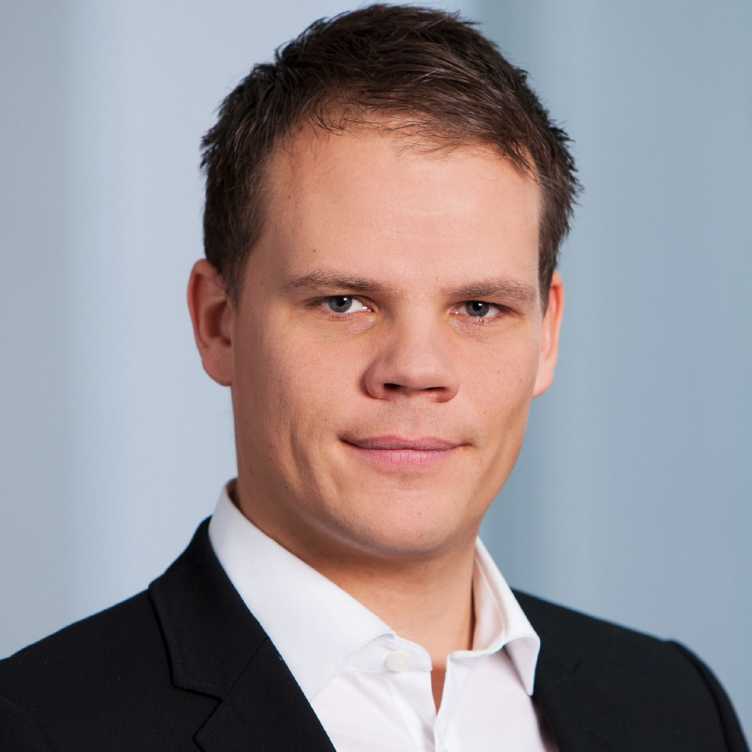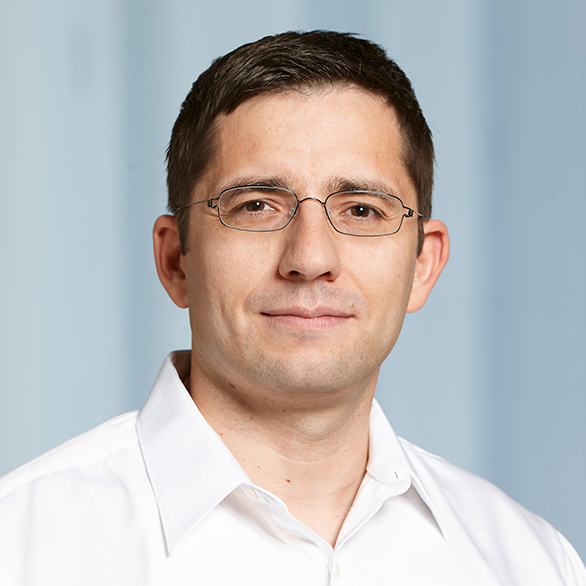ERC Consolidator Grants for Otmar Hilliges and Martin Vechev
Professor Otmar Hilliges from the Institute for Intelligent Interactive Systems and Professor Martin Vechev from the Institute for Programming Languages and Systems receive ERC Consolidator Grants for their respective research projects. The mid-career award is given to outstanding researchers with highly promising scientific track records. Congratulations!
Robust computer vision enables improved collaboration between man and machine

Professor Otmar Hilliges develops methods for computers to perceive visual information (computer vision). His project aims to recognise human movements and activities in complex environments more precisely, and to convert images of humans into high-resolution digital 3D information. To this end, he will create a new neural articulated implicit 3D model of the human shape, pose and appearance. This model will serve as the basis for new artificial intelligence methods to understand human movement and their interactions with other humans and the objects in the environment. This could one day be used, for example, in home care robotics, in the field of augmented and virtual reality, in advanced tele-presence systems as well as for motion analysis in sports science and sports broadcasting.
Otmar Hilliges is an associate professor at the Department of Computer Science. There, he heads the Institute of Intelligent Interactive Systems and leads the Advanced Interactive Technologies Lab. In his research, he focuses on machine perception of human activity, computer vision and machine learning. Specifically, Hilliges is interested in spatio-temporal understanding of how humans move and interact with the physical world. He develops algorithms, methods and representations for human- and interaction-centric understanding of the world from videos, images and other sensor data. Before joining the Department of Computer Science in 2012, Hilliges was a postdoc and later a researcher at Microsoft Research Cambridge.
Making AI secure, fair and resilient

Thanks to the new methods by computer science professor Martin Vechev, computer systems become more reliable, resilient, safe and secure. His project is dedicated to machine learning and artificial intelligence systems. By developing new technologies, he aims to contribute to a next generation of deep learning systems that people can better trust and rely on. A central approach is that the algorithms behind them are mathematically certifiable in terms of security, fairness and resilience.
Martin Vechev is a full professor at the Department of Computer Science, where he heads the Secure, Reliable, and Intelligent Systems Lab. His main fields of research are Big Code, certified machine learning and programming languages for quantum computers. Vechev and his research group have carried out pioneering work, particularly in a new sub-area of artificial intelligence known as “learning from Big Code”. Further, the scientist has won a number of awards, including an ERC Starting Grant in 2015. Before joining the Department of Computer Science in 2012, Vechev was a Research Staff Member at the IBM T.J. Watson Research Center in New York.
Read the official press release here and learn more about the background of these grants.
About the ERC Consolidator Grant
The ERC Consolidator Grant is a mid-career research award. The prize is given to outstanding researchers with at least seven and up to twelve years of experience after their doctorate, and a scientific track record showing great promise. Research must be conducted in a public or private research organisation located in one of the EU Member States or associated countries. The prize money amounts to an average of 2 million Euro per grant. external page More
The European Research Council, set up by the European Union in 2007, is the premiere European funding organisation for excellent frontier research. Every year, it selects and funds the very best creative researchers to run projects based in Europe. It offers four core grant schemes: Starting, Consolidator, Advanced and Synergy Grants.